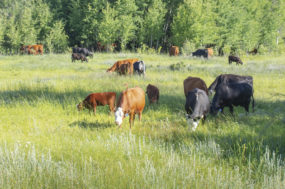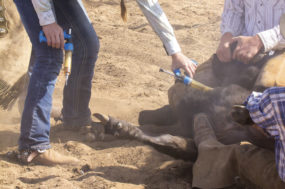And while it is exciting to see the next generation want to preserve third-, fourth- or fifth-generation family farms, the transition can be challenging and time-consuming to complete the succession process. It is a time where “leadership” really needs to come to the forefront.
My area of specialty is leadership. I do not claim to be an expert on family succession planning; therefore, I teamed up with colleague Dave Specht of Connell, Washington, who is a strategy consultant to family businesses to address the issue of leadership during farm transitions.
Specht owns Advising Generations LLC, a consulting business for farm families, and he previously served as a faculty member at the University of Nebraska – Lincoln for three years, focusing on education about strategies needed for successful family business transitions. Specht recently authored a book, The Farm Whisperer, which is now available on Amazon.com to help families with succession planning.
I asked Specht a few questions from his years of experience of sitting across the table visiting with farm families going through the transition process and how he views leadership emerging during the succession process.
In typical farm succession planning/transition, does a leader emerge in the group to guide the process? If so, is it always the same person (dad, son, etc.) or does it seem to vary? If so, why, or what reason do you think that is?
SPECHT: While the assumed leader in farm succession is typically the patriarch, it isn’t always the case. Many times the matriarch has the ability to understand the dynamics of the family and the farm in a unique way. She can influence and communicate with her husband. The key is to have someone willing to get the conversation started and then keep it going.
The next-generation family member who is coming back or is already back in the operation also has responsibility to get the conversation going if the senior generation doesn’t lead out. The next generation needs to take ownership of their career, and if that means asking tough questions or putting deadlines on getting a plan in place, that is what they need to do.
Too often, the next generation feels that starting the conversation will come across as rude or greedy, but they need to have a sense for what their opportunity looks like and if it will be a good situation for their own young family.
What is the most important element in the transition for future succession and delegation to the next generation?
SPECHT: The key element that needs to be focused on is “raising a generation of owners, not farmhands.” Compensation and job descriptions should be structured as early as possible to have the next generation treat the operation as their own, care for it, watch expenses and pay attention to risks.
The senior generation should develop a list of jobs/responsibilities that only they know how to do and begin to train the next generation on those tasks. This is one way to intentionally remove management risk from the operation and to develop the capacity and confidence of the next generation.
Example: When new equipment is purchased, what is the process that the senior generation goes through? How can the next generation participate in this mental exercise?
What is the most difficult element in the transition for future succession and delegation to the next generation?
SPECHT: The most difficult element in transition is “letting go.” The senior generation usually struggles to let go for a couple of reasons: Their identity and personal value is derived from the operation, and by letting go of responsibility they may feel like they are losing a part of who they are.
They may not trust the decision-making ability of the next generation. They are financially responsible for the successes/failures on the farm, and they aren’t willing to have their retirement be put in jeopardy by the next generation.
What aspects of leadership could assist farm families in a smooth transition to future succession?
SPECHT: I once heard it said that leaders are ready for succession planning when their desire for continuity outweighs their desire for control. Succession requires leadership to be intentional about putting contingency plans in place for ownership and management.
It also requires leaders to make consistent communication a priority. One sign this is happening is when families have family meetings with structured agendas which allow for open communication about current issues and the strategic future of the farm.
Does the process of leadership from one generation to another occur in the time frame to conduct the succession planning process, or does it continue to develop over time?
SPECHT: Sadly, succession planning is often initiated because of a health issue in the family, or a tragedy has occurred with another friend. Management succession should take place over a number of years. Many duties and skills will have to be learned, and they can take years of experience and training.
Ownership transitions should also happen over a longer period of time in order to leverage some of the tax-advantaged mechanisms available. There is no quick fix to farm continuity; it takes intentional planning, consistent communication and personal sacrifice from everyone to be able to communicate and execute a plan which will preserve the family and perpetuate the farm. ![]()
PHOTO 1: Dave Specht. Photo courtesy of Advising Generations LLC

-
B. Lynn Gordon
- Teaching Learning and Leadership
- College of Agricultural and Biological Sciences and College of Education
- South Dakota State University
- Email B. Lynn Gordon








